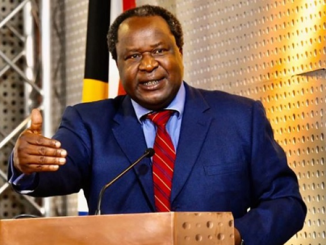

Founder: Turnaround Talk
With Comair grounded while its BRPs scramble to secure the necessary funding to bankroll the company’s business rescue plan, one would assume that the other domestic airlines in the country would be capitalizing on this significant opportunity by trying to take business away from Kulula and British Airways. One would also assume that Mango would be the main beneficiary of this. However, the SAA subsidiary is facing its own challenges and has been dealt a significant blow by Public Enterprises Minister Pravin Gordhan.
It seems as if the war for the sky is being fought within the business rescue/business turnaround profession.
Reduced funding for Mango
A News24 article points out that after an intervention by Public Enterprises Minister Pravin Gordhan, low-cost airline Mango had to accept R85 million less than the R819 million it was due from government for restructuring.
Mango went into voluntary business rescue at the end of July last year and has not flown since. It owes R2.85 billion to creditors, and also has about R183 million of un-flown ticket liabilities. The airline, a subsidiary of South African Airways (SAA), cannot resume operations unless it secures an investor to buy and relaunch the airline.
The article points out that, at the beginning of last year, Government allocated R819 million to Mango to help restructure its business. The money was paid to Mango in instalments, with a balance of R399 million remaining by March this year. Gordhan, however, informed Mango’s rescue practitioner that he wanted to hold back R100 million due to “various pressures on the fiscus”, according to the latest business rescue report. But Mango’s BRP, Sipho Sono, says he managed to negotiate the amount kept back down to R85 million.

Photo By: Mango
If Mango fails to find a buyer, the airline will end up being wound down, and its creditors will receive 10c in a rand, Sono estimates. This is about 3c in the rand less than the estimated dividend if Mango received the full R819 million Parliament approved as a special allocation.
The News24 article adds that the R819 million comes from R10.5 billion allocated by former finance minister Tito Mboweni in a medium-term budget for the implementation of the business rescue plan of SAA. SAA’s rescue plan did not provide for funding of SAA’s subsidiaries, including Mango. Therefore, the Department of Public Enterprises (DPE) asked Parliament for the special allocation to subsidiaries – including the R819 million for Mango.
Mango does not form part of the deal by which the Takatso Consortium will obtain a 51% stake in SAA. Global Aviation, a minority shareholder of Takatso, operates its own low-cost airline, LIFT.
Mango’s business rescue plan stipulates that any buyer will have to show it has access to at least R200 million to enable Mango to resume operations.
‘Reasonable prospect’ to rescue Mango
The article points out that in the event that the sale transaction cannot be concluded, Sono will have to wind down the company. Nevertheless, he remains of the opinion that there is a reasonable prospect of rescuing Mango.
Sono says in his latest business rescue report that, in his view, in all likelihood trying to obtain that last R85 million would require him to institute litigation.
“This comes with its owns risks such as the uncertainty of an outcome and costs associated with litigation, as well as the possibility of the litigation delaying the finalisation of the investor process and completion of the business rescue process,” states Sono in the report.

Photo By: News24
The News24 article adds that, earlier this year, Sono did turned to the courts to try to get money due to Mango from government. In early May this year, he instructed his attorney to issue an urgent application in the North Gauteng High Court in Pretoria, seeking to compel the DPE and SAA to release the balance of the funds (R399 million of the R819 million at that time).
Sono met with Gordhan “to explore the possibility of resolving the matter amicably”, states his report. “At that meeting, [Gordhan], among other things, indicated that due to various pressures on the fiscus, there was a desire to achieve a certain saving from the funds initially allocated to Mango and for that saving to be redirected to other needs of government.”
At the end of the meeting, Gordhan undertook to revert to Sono with a proposal on how the impasse could be resolved. On 11 May 2022, the DPE and SAA met with Sono and proposed that an amount of R100 million be retained by SAA for the purposes alluded to by Gordhan. Sono states that, after careful consideration, he agreed to SAA retaining a lesser amount of R85 million.
On that basis, an amount of R225 million was paid to Mango and Sono agreed to withdraw the court application.
The article points out that, as for the process of trying to find a suitable buyer for Mango, Sono states in his report that the process is progressing according to the time frame agreed with the preferred bidder. Accordingly, Sono anticipates the purchase price will be deposited before the end of June this year.
A blow for the profession
At the height of the SAA business rescue, Eric Levenstein (Director at Werksmans Attorneys) published an article on Turnaround Talk pointing out that the profession learned a lot of lessons from the SAA business rescue, one of the major lessons was the balancing act between the Companies Act and the Public Finance Management Act. The conflict between these acts unduly prolonged the SAA recue.
Have we focused on the role that Government plays in the delays that the profession has faced in major rescues? Once again, Mango now has to go out and source additional funding after Government changed its mind and took a turn that was seemingly unexpected. It is delays such as this that complicate rescues and leave those invested in the rescue asking why the BRP did not anticipate these issues. In fairness to Sono, one cannot read the minds of Government at the best of times.
We cannot have Government lament the length of time that it takes to implement a rescue and then make a decision that effectively prolongs a significant rescue. Creditors and shareholders are entitled to value and they are entitled to the speedy implementation/execution of a business rescue plan. However, some delays are not within the control of BRPs and one hopes that creditors and shareholders bear this in mind when they participate in a survey such as the Deloitte Restructuring Survey and make a statement like: the length of time to implement a rescue is problematic.




